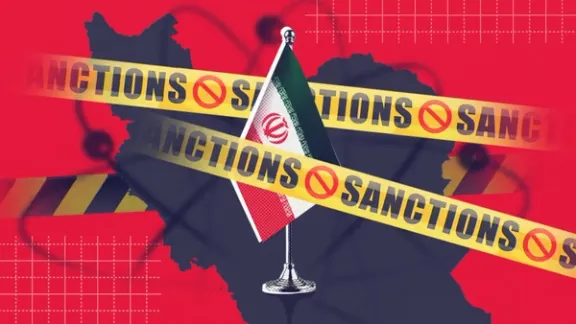Europe has no right to trigger Iran snapback sanctions, Russia says

Britain, France and Germany cannot reimpose UN sanctions on Iran under Resolution 2231, Russia’s envoy in Vienna said on Wednesday.

Britain, France and Germany cannot reimpose UN sanctions on Iran under Resolution 2231, Russia’s envoy in Vienna said on Wednesday.
The three European states were threatening Iran with the snapback mechanism by the end of August, Russia’s representative to international organizations in Vienna wrote on X. Such a move would restore all UN sanctions but lacked legal basis, he said.
“The UK, Germany and France try to blackmail Iran and threaten to launch by the end of August the so-called Snapback mechanism which is envisaged in the UNSC resolution 2231 and can restore all previous economic sanctions against Iran. But there is a serious obstacle on the way of implementing this threat. The above-mentioned European states are themselves in violation of resolution 2231 and the JCPOA,” said Mikhail Ulyanov.
International law bars a state from invoking rights under an agreement while failing to meet its own obligations, he argued.
He cited a 1971 advisory opinion of the International Court of Justice on South Africa’s presence in Namibia, adding: “An attempt by the E3 to trigger snapback despite their own non-compliance would contradict the fundamental principles of international law,” said Ulyanov.
What the texts say
Neither the 2015 nuclear accord, known as the JCPOA, nor UN Security Council Resolution 2231 stipulates that a state alleged to be in non-compliance is barred from invoking snapback.
Both documents say that any JCPOA participant may notify the Security Council of “significant non-performance” after pursuing the dispute-resolution mechanism. Unless the Council adopts a resolution to extend sanctions relief within 30 days, all previous sanctions automatically return.
The right to invoke snapback expires in October 2025 when Resolution 2231 sunsets. The main requirement in the texts is to be a JCPOA participant. In 2020, a US attempt at snapback was dismissed not for non-compliance but because Washington had formally ceased participation in the accord.
Iranian and Chinese reactions
Snapback, if activated, would not drastically alter the country’s economic situation, though its consequences would be serious and heavy, said Iran’s Foreign minister Abbas Araghchi in an interview with IRNA published on Wednesday.
“We have for years been in talks with China and Russia on ways to prevent snapback… though we may not succeed,” said the Iranian foreign minister. Europe has “no legal, political, or moral right” to trigger the mechanism, said Araghchi.
China’s permanent mission to the UN also filed a note with the Security Council on Wednesday, saying that attempts to activate the snapback could have "unpredictable and catastrophic" consequences, destroying all the diplomatic achievements of recent years.
The document said any attempt by some countries to activate the snapback without following the legal process would be an abuse of the Security Council's powers and duties and would be invalid.
What snapback means
When the snapback mechanism is activated under UN Security Council Resolution 2231, it automatically reimposes all UN sanctions on Iran that were lifted as part of the 2015 Joint Comprehensive Plan of Action (JCPOA).
This happens because the mechanism is designed to be veto-proof -- no Security Council member, including permanent members like China or Russia, can block it once a JCPOA participant files a complaint of “significant non-performance” by Iran.
The reimposed measures include the arms embargo, restrictions on nuclear enrichment and ballistic missile programs, asset freezes, travel bans on designated individuals, and inspections of shipments suspected of carrying prohibited materials.
Essentially, it restores the entire set of pre-JCPOA UN sanctions as if the nuclear deal had never been reached. These sanctions remain in force until the Security Council decides otherwise.